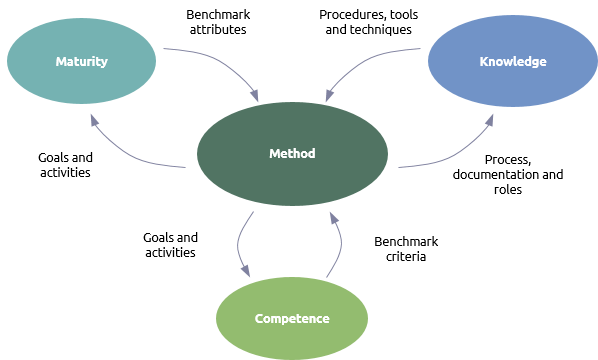The Praxis method comprises process models and descriptions of documentation. These lie at the heart of the governance of a project, programme or portfolio. The individual processes make use of functional procedures, tools and techniques and provide a life cycle based approach to their application.
The nature of projects and programmes means that they have a very similar life cycle. They can therefore be managed using the same fundamental processes but with adaptations to suit their context and specifically, their complexity.
While many characteristics of portfolios are shared with programmes, they have a different life cycle. Hence the inclusion in Praxis of two process models, one covering projects and programmes and the other covering portfolios.

The adaptation and implementation of consistent methods is an important factor in developing capability maturity. The processes and documentation in the method provide the mechanism for the integration of functions (and therefore capabilities) which leads to maturity.
The goals and activities of each process provide the basis for defining maturity indicators. In return the maturity model provides attributes that can be used to guide the implementation of the method.
The goals and process activities also provide the structure for knowledge and performance criteria in the competency framework. In return, competency definitions provide a benchmark for individual performance of the processes.





